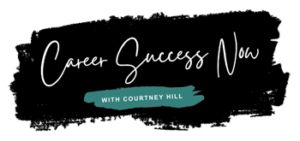The Biggest Career Search Success Factor

Know what my single biggest piece of advice to achieving career hunting success is? It’s a complex, yet VERY simple concept. Ready? It is: BECOME OBSESSED. Yes, become obsessed. It’s that simple. If you want to accomplish something, get great at something, or attain something, you need to become obsessed […]
Mastering the Interview Process

Pre-Interview Preparation Stage As you continue to navigate your way through the career search process, you may find yourself in the fortunate position of hearing back from contacted companies. How exciting! If a interview is eventually scheduled, what are the first steps you should take? The work on your end does not stop here. […]
Tips and Tricks to Landing Your Dream Job

Look, we’ve all been there. Scrolling through #indeed, or #linkedin or #monster and seeing a job posting that catches your eye. You read all the posting details, research the company, and think to yourself, “that’s exactly what I want to do, I’m going to apply“. You dig through your computer, open the resume you’ve been […]
